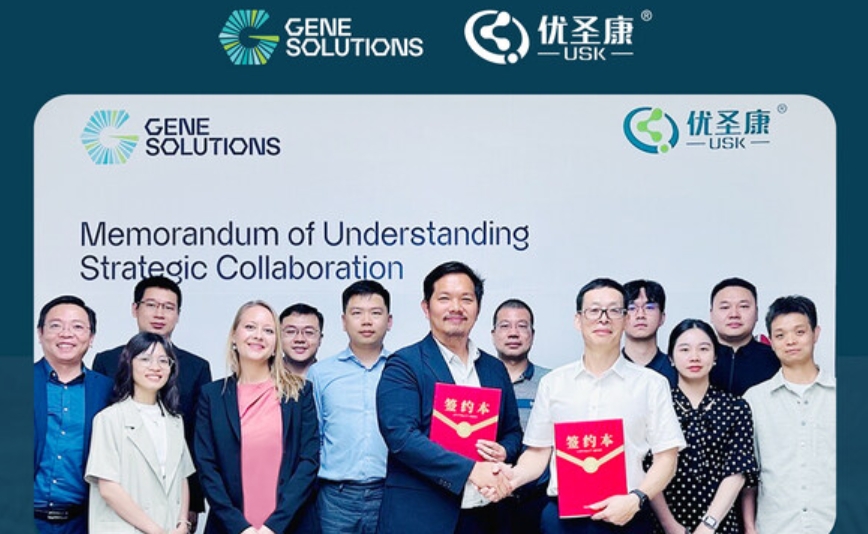
Gene Solutions, a leading multinational biotechnology company and Shenzhen USK Bioscience Co. (USKBio), a prominent innovator in molecular diagnostics, have entered a strategic partnership through a Memorandum of Understanding (MoU).
The landmark agreement paves the way for the establishment of a state-of-the-art next generation sequencing (NGS) laboratory in southern China, advancing localized oncology diagnostics.
The collaboration will leverage USKBio's existing infrastructure, and Gene Solutions' advanced next-generation AI & genomics capabilities to jointly establish a next-generation sequencing (NGS) laboratory. The lab will focus on accelerating access to early cancer detection and molecular residual disease (MRD) monitoring using artificial intelligence (AI)-powered circulating tumor DNA (ctDNA) technologies, tailored to address the unique clinical needs of southern China's healthcare landscape.
USKBio brings extensive expertise in Polymerase Chain Reaction (PCR)-based In Vitro Diagnostics (IVD) and Good Manufacturing Practice (GMP)-certified production capabilities. Gene Solutions contributes its leadership in NGS-based oncology applications, highlighted by its groundbreaking SPOT-MAS test — Asia's first clinically validated multi-cancer early detection (MCED) assay, validated through a prospective study of 9,024 participants.
Additionally, Gene Solutions recently published a real-world MRD study involving 623 patients across six cancer types—lung, colorectal, breast, gastric, liver, and ovarian—demonstrating the clinical utility of ctDNA for monitoring treatment response and assessing recurrence risk.
This partnership will focus on localising and validating these cutting-edge technologies for the Chinese market while fostering joint R&D and production of advanced IVD medical devices. This alliance represents a major step forward in delivering accessible, high-impact, personalised cancer diagnostics to a broader population in China.
The partnership also includes technology transfer, technical training, and joint commercialisation efforts to ensure rapid deployment and widespread adoption of these advanced genomic tools.




